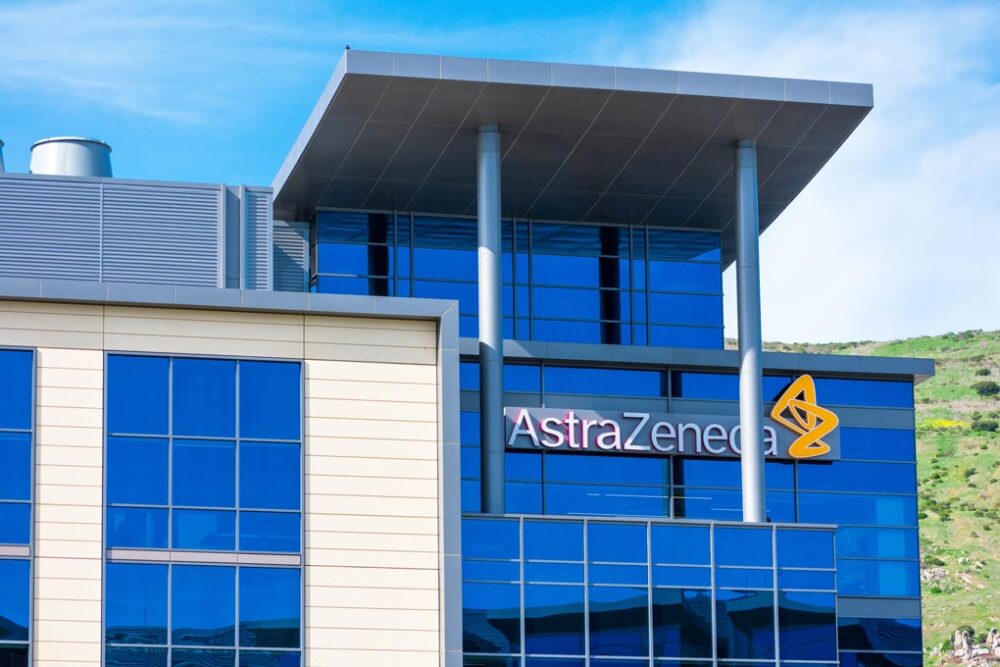Advertisment
EU approves Imfinzi (durvalumab) as first and only immunotherapy for limited-stage small cell lung cancer – AstraZeneca

AstraZeneca’s Imfinzi (durvalumab) has been approved in the European Union (EU) as monotherapy for the treatment of adults with limited-stage small cell lung cancer (LS-SCLC) whose disease has not progressed following platinum-based chemoradiation therapy (CRT). The approval by the European Commission follows the positive opinion of CHMP and is based on results from the ADRIATIC Phase III trial, which were published in The New England Journal of Medicine (see citation below).
Suresh Senan, PhD, radiation oncologist at the Amsterdam University Medical Centers, The Netherlands, and principal investigator in the trial, said: “This approval marks a turning point for patients with limited-stage small cell lung cancer in Europe, bringing them an immunotherapy option for the first time. An unprecedented 57% of patients treated with durvalumab were still alive at three years in the ADRIATIC trial. This significant advance establishes a new benchmark in a setting where the standard of care has remained unchanged for decades.”
Dave Fredrickson, Executive Vice President, Oncology Haematology Business Unit, AstraZeneca, said: “Imfinzi has the potential to transform how limited-stage small cell lung cancer is treated as the first immunotherapy approved in Europe in this setting. As the only immunotherapy approved for both early and late-stage disease, Imfinzi is poised to become the foundation for transforming outcomes for people with small cell lung cancer.”
In the trial, results showed Imfinzi reduced the risk of death by 27% versus placebo (based on an overall survival [OS] hazard ratio [HR] of 0.73; 95% confidence interval [CI] 0.57-0.93; p=0.0104). Estimated median OS was 55.9 months for Imfinzi versus 33.4 months for placebo. An estimated 57% of patients treated with Imfinzi were alive at three years compared to 48% for placebo. Imfinzi also reduced the risk of disease progression or death by 24% (based on a progression-free survival [PFS] HR of 0.76; 95% CI 0.61-0.95; p=0.0161) versus placebo. Median PFS was 16.6 months for Imfinzi versus 9.2 months for placebo. An estimated 46% of patients treated with Imfinzi had not experienced disease progression at two years compared to 34% for placebo. The safety profile for Imfinzi was generally manageable and consistent with the known profile of this medicine. No new safety signals were observed.
SCLC is a highly aggressive form of lung cancer, with an estimated 8,000 people treated for LS-SCLC across the five major European countries each year. LS-SCLC typically recurs and progresses rapidly, despite initial response to standard-of-care chemotherapy and radiotherapy. The prognosis for LS-SCLC is particularly poor, as only 15-30% of patients survive for five years after diagnosis.
Imfinzi is approved in the US and several other countries in this setting based on the ADRIATIC results. Regulatory applications are currently under review in Japan and several other countries for this indication. Imfinzi is also approved in combination with chemotherapy for the treatment of extensive-stage SCLC based on the CASPIAN Phase III trial.
The ADRIATIC trial is a randomised, double-blind, placebo-controlled, multi-centre global Phase III trial evaluating Imfinzi monotherapy and Imfinzi plus Imjudo (tremelimumab) versus placebo in the treatment of 730 patients with LS-SCLC who had not progressed following cCRT. In the experimental arms, patients were randomised to receive a 1500mg fixed dose of Imfinzi with or without Imjudo 75mg every four weeks for up to four doses/cycles each, followed by Imfinzi every four weeks for up to 24 months. The dual primary endpoints were PFS and OS for Imfinzi monotherapy versus placebo. Key secondary endpoints included OS and PFS for Imfinzi plus Imjudo versus placebo, safety and quality of life measures. The trial included 164 centres in 19 countries across North and South America, Europe and Asia.
Citation – Durvalumab after Chemoradiotherapy in Limited-Stage Small-Cell Lung Cancer. Authors: Ying Cheng, M.D., David R. Spigel, M.D., et al. Published September 13, 2024N Engl J Med 2024;391:1313-1327DOI: 10.1056/NEJMoa2404873VOL. 391 NO. 14.





